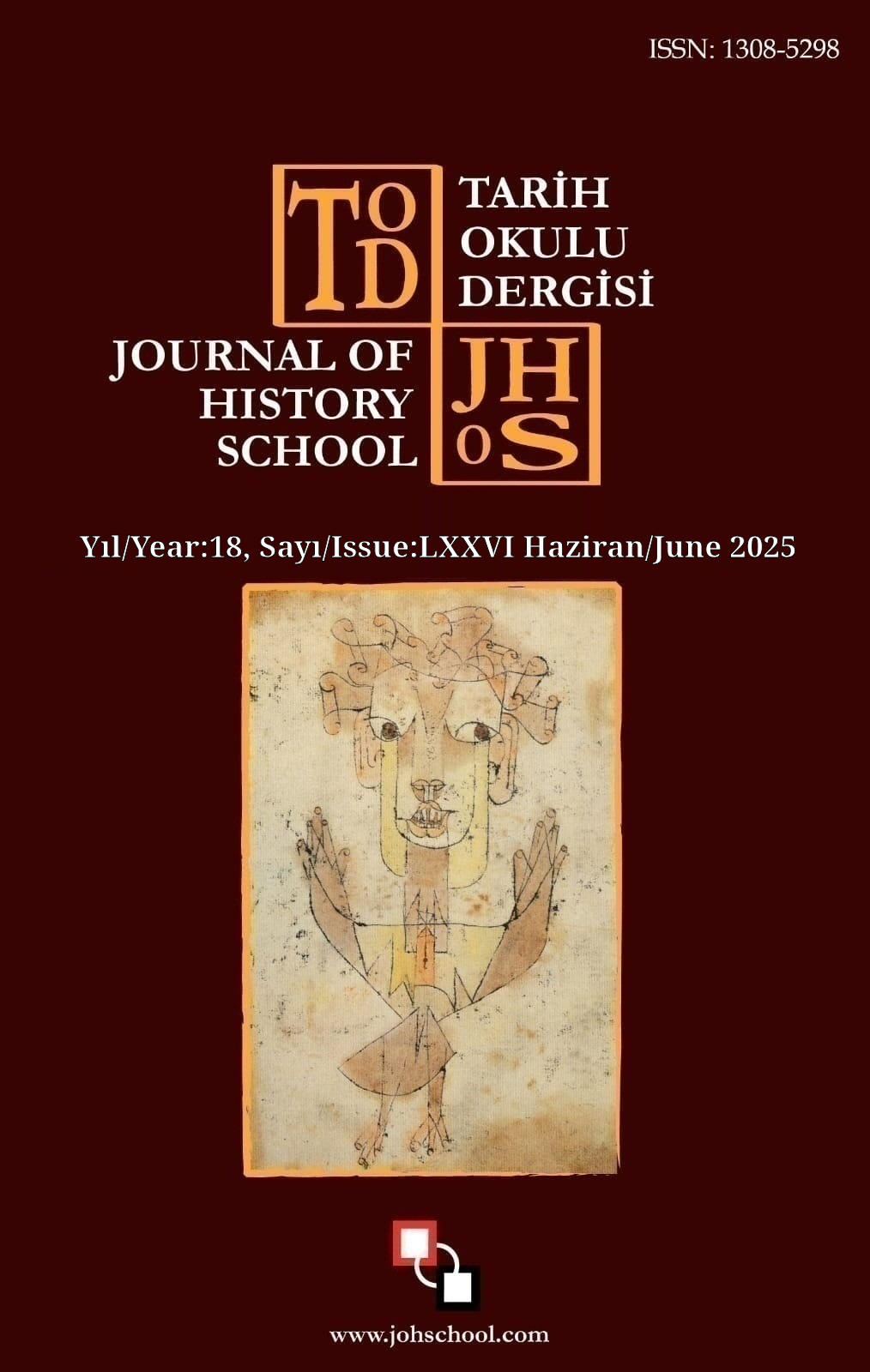Author :
Abstract
Memlükler âzatlı emîrlerin yönetimde olduğu Türk devletidir. Devlet yönetiminde köle kökenli insanların bulunması bakımından dikkat çeken bu iktidar Mısır, Suriye ve Hicâz’da üç yüz yıla yakın hüküm sürmüştür. Siyasî istikrarın ortam hazırladığı kültürel çevre ulemanın yetişmesini ve eser üretimini sağlamıştır. Kültürel atmosferin canlı olduğu bu süreçte İslâmî ilimlerin pek çok alanında eser üretilmiştir. Literatürün otorite metinleri olması bakımından bu dönemde telif edilen Kur’ân tefsirleri dikkat çekmektedir. Kur’ân âyetlerinde köleliğe dair atıflar vardır. Memlük dönemi müfessirleri söz konusu âyetleri yorumlamışlardır. Makale kölelerin statü değiştirerek devlet yönetiminde oldukları süreçte yazılan tefsirlerdeki kölelik olgusunu incelemektedir. Kölenin statü değiştirdiği siyasal anlayışta bunun kültürel yazına özellikle Kur’ân tefsirlerine yansımasını sorgulayan bu araştırma tefsirler özelinde incelemedir. Bu incelemenin amacı siyasetin tefsir metinleri üzerinde yönlendiriciliğini sorgulamak olduğu kadar tefsirlerin yazıldığı döneme duyarlı metinler olup olmadığını da ortaya koymaktır. Memlük dönemi tefsirciliğinin kölelik konusunda temel çizgilerini ortaya koyma amacı bakımından özgün olan bu araştırma metin tahlili yöntemiyle hazırlanmıştır.
Keywords
Abstract
The Mamluks were a Turkish state ruled by emancipated emirs. This rule, notable for the presence of people of slave origin in the government, lasted for nearly three hundred years in Egypt, Syria, and the Hejaz. The cultural environment fostered by political stability enabled the training of scholars and the production of works. During this period, characterized by a vibrant cultural atmosphere, numerous works were produced in various fields of Islamic sciences. Amongst these, Qur’anic exegeses authored during this time stand out as authoritative texts in the literature. There are references to slavery in the Qur’anic verses. Mamluk-era exegetes interpreted these verses. This article examines the phenomenon of slavery in the Qur’anic exegeses, written during the period when slaves changed their status and became part of the state administration. This study, which questions how the political understanding that allowed for the status change of slaves is reflected in the cultural literature, especially in Qur’anic exegeses, focuses on these exegeses. The aim of this article is to investigate the influence of politics on exegetical texts as well as to determine whether these texts are sensitive to the period in which they were written. This research, unique in its aim to reveal the main lines of Mamluk-era exegesis concerning slavery, was prepared using the method of textual analysis.





